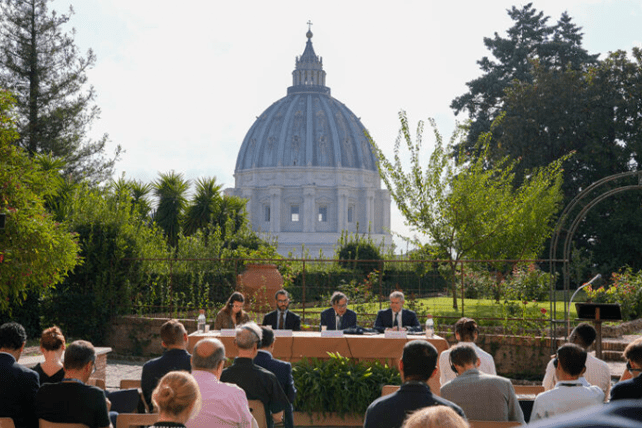Even so, there has been relatively little movement among Catholics when it comes to Francis’ view that climate change poses an immediate existential threat. Between 2014 and 2023, the number of Hispanic Catholics who view climate change as crisis shifted from 28% to 31%, according to PRRI. Among white Catholics, the number rose from 16% to 20%.
And while the religiously unaffiliated saw the most dramatic shift in that time (33% in 2014 compared with 43% in 2023), no group in the poll reported a majority who view it as a crisis.
Catholic Relief Services, the USCCB’s overseas aid agency, was more effusive in their praise of Francis’ new letter. In a statement, the group said “Laudate Deum” rightly centers the plight of the vulnerable and called the document a “rallying cry for the crucial policy work needed” to blunt the impacts of climate change.
Representatives of non-Catholic groups also celebrated Francis’ new letter, such as the Rev. Susan Hendershot, president of Interfaith Power and Light, a faith-based environmental organization.
“As people of faith, we are called to care for our Sacred Earth and for our neighbors, especially those who are most vulnerable,” Hendershot said in a statement. “Once again, Pope Francis helps us to recognize the connection between the economy, those who have been historically marginalized, and our Common Home. He also calls us to recognize that we are not powerless to act, and to live out our spiritual values in ways that will heal the earth and provide hope to its people everywhere.”
Myal Greene, head of World Relief, the humanitarian arm of the National Association of Evangelicals, called the document a “powerful call to look beyond traditional points of division and polarization and pursue a pathway for creation care that embraces care for our vulnerable neighbors around the world — an integral part of God’s creation.”
Greene was echoed by Tori Goebel, a national organizer and spokesperson for Young Evangelicals for Climate Action, who expressed hope “Laudate Deum” could help inspire evangelical leaders “to take bold, faith-rooted climate action for the health and wellbeing of God’s creation and our communities.”
That would be a significant shift: Whereas Francis argues in “Laudate Deum” that “it is no longer possible to doubt the human … origin of climate change,” the PRRI survey found only 31% of white evangelical Protestants say they believe climate change is mostly caused by human activity such as burning fossil fuels — the lowest percentage of any faith group polled. White evangelicals are also the most likely (19%) to say there is no solid evidence that climate change is happening.
Even so, Goebel remained optimistic.
“Laudato si’ has been deeply meaningful for many young evangelicals, and we are encouraged to see continued calls for action that are directly tied to our Biblical mandates to care for creation and love our neighbors,” Goebel said. “Laudate Deum highlights the stark realities of the climate crisis and reminds us that care for our common home is directly related to justice and life itself.”
This article originally appeared here.

